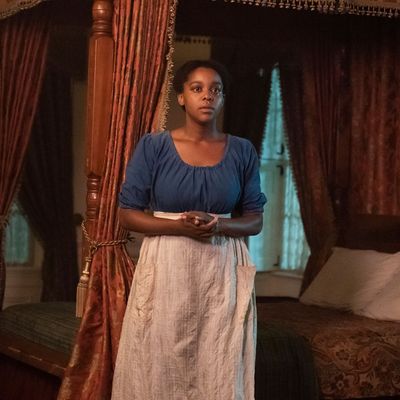
The indoctrination that makes white supremacist thought and politics in America was more severe and violent in the 18th century than today (an abolitionist ideology could cost your life), though it still persists undeniably. White supremacy breeds so well in America because this country has a long history of anti-intellectualism that makes it almost too easy to indoctrinate the masses. Historian Richard Hofstadter argued that anti-intellectualism is a crucial cultural tradition that defines and permeates American history. He’s also quoted as saying, “If there is anything more dangerous to the life of the mind than having no independent commitment to ideas, it is having an excess of commitment to some special or constricting idea.”
Well, considering America was built by religious zealots and racists, who were often weary of the upper, more educated classes, anti-intellectualism worked like gasoline on a fire. Slave masters knew this as well. Although many were entirely ambivalent to the notion of learning (Tom is barely literate), the education of a slave was considered abhorrent. After catching Dana in the library in the last episode, Tom tells Kevin she’s forbidden from reading in the house and especially in front of his “stock,” as he doesn’t want anyone filling their head “full of ambitions inappropriate to their station.” But during their trip to the city in this episode, he defends his decision to pull 12-year-old Rufus out of school because “all a man needs to learn is his sums.” They understood that knowledge is power, so it was imperative that slaves didn’t have access to it, but outside of that, what was the purpose of learning if you know your mere existence is enough to put you at the top of the hierarchy?
Dana recognizes the importance of literacy and fulfills Luke’s wish of teaching Nigel to read. She has sessions with him in the cookhouse, and Carrie becomes intrigued, so Dana invites her to join the lesson. Sarah catches her daughter sitting with Dana and Nigel going over phonetics and orders Carrie to stop all interactions with Dana, then condemns Dana for troublemaking, saying that her “best intentions” have resulted in nothing but chaos. To Nigel, she warns him of the consequences of getting caught reading, stating it could get him killed “or worse.” Dana comforts Nigel, telling him nothing will happen to him. This is a dangerous thing to say to someone whose fate is in the hands of Tom Weylin. It’s as if Dana’s skewed 21st perception of Black history taught her that good will prevails if you just try hard enough and summon your inner Harriet Tubman. Baby, it doesn’t work like that.
Black people with radical ideas, ideas that usually lead to radical actions, were considered dangerous. Running away was more complicated than saying “Fuck this shit” and walking away like it’s a minimum-wage job. First, where would they go? It’s not like the North was a Black utopia free from racism. And how would they avoid slave patrollers on their way? In the book, Dana asks about what happens with runaway slaves, and she’s told it’s kind of like dying — no one knows because no one has come back to tell the story. But they have witnessed people who were caught being tethered to the back of a horse and dragged back to the plantation. Sarah’s harsh reaction to Carrie’s interest in reading is an example of all the strict Black mothers who want to protect their children from the harshness of the white world by creating an even harsher shield. Sophina Brown deserved more time to explore this role and show the complexity of submission as an act of resistance, which was what her character did in the novel. I can’t blame a mother for wanting to protect her child from that on the heels of losing two of her sons. She’s right; some things are worse than death.
Now that they’ve further settled into their roles, Dana finally gives Kevin a little hell about his constant statements that expose how much his whiteness makes him willfully ignorant of the situation. You would think his calling it a retreat would cross a line, but it’s when Kevin remarks that if they do get stuck in the past, it would be “fun” to see more of the world during this time period that Dana replies, “Sure, sounds fun if you’re white.” (Something she should’ve said to his weird-ass during their pillow talk.) He suggests they go home, but Dana doesn’t feel as if she’s fulfilled her obligations yet and wants to continue the reading lessons. Now that she’s grown a connection with the community, she wants to save more people than only Rufus.
The couple separate for the rest of the day, with Kevin being forced to join Tom, Rufus, Nigel, and Luke as they go into town to handle some business. Dana stays back on the plantation and meets Margaret’s sister May, who is visiting from Baltimore. Margaret is extra-cruel to Dana since Kevin isn’t there to protect her. She taunts Dana about her relationship with Kevin and spits in the tea Dana served before throwing the whole cup in her face. Her actions upset her sister, who proudly tells Dana that she runs in circles of “liberal thinkers” (the antebellum equivalent of #blm in a Twitter bio). But, like a lot of the people who dutifully posted Black squares before returning to their white lives, May’s “liberal thinking” is merely a form of virtue signaling. Of course, she said nothing in front of her sister while it was happening — that would take things too far.
On the way to town, Tom takes the men to see a plot of land he’s considering buying for Luke to oversee. Luke, resentful of Tom’s treatment, explodes and releases his built-up anger toward Tom. He says the land is worthless and “it wouldn’t be the first thing you took for yourself just for the sake of taking,” referring to Tom raping Celeste. I’m surprised Luke didn’t get immediately and violently punished; Tom in the book was also considered fairly tame but would’ve given Luke the whip for that, regardless of them growing up together. This Tom chooses not to respond; instead, he abruptly announces that it’s time to leave. After Luke walks away, Tom attributes the outburst to grief and says to Kevin, “There’s nothing worse than a melancholy slave.” It’s not until they get into the city and Tom runs into fellow slave-owner Benjamin at the barbershop, who comments on Tom’s “gracious” treatment of Luke, that Tom decides how to punish Luke. He sells Luke to Benjamin before heading to the bar with Kevin and Rufus.
Rufus gets wasted at the bar, and Tom sends him home after Rufus says he wants a relationship like Kevin and Dana. He’s blacked out by the time Nigel gets him home, and Margaret is distraught by her son’s condition. This is enough for Margaret to take Rufus in the middle of the night to return to Baltimore with May. Dana, fearing that something may happen to Rufus without her protection, does everything in her power to keep them on the plantation. In her hysteria, she reveals to Margaret that it was she who saved Rufus so many times. Naturally, Margaret interprets this as Dana being a harbinger of evil and screams “devil” at her while they ride away.
At the bar, Tom chips away at Kevin until he accepts the alcohol, breaking his sobriety just in time for the main event of the trip: an organized rape and assault of a Black woman by a Black man in front of an audience of white men. I’m starting to sound redundant, but I have to point out how the majority of the Black women characters are not only denied space to be full, complex human beings, they’re too often reduced to their wombs without nuance, care, or any defining character traits. Kevin is deeply disturbed by what he witnessed and exits the bar. They head back and Tom says he thought Kevin of all people would have appreciated the “spectacle” because of his relationship with Dana. He says that Tom’s feelings for his “chattel” are unnatural, and feeling love for them would be cruel. You can fuck them but never love them. Kevin retorts by bringing up Winnie, who Tom was putting up missing flyers for while they were in town. Tom abandons Kevin in the forest at gunpoint for this disrespect, threatening to shoot him if he returns.
Kevin goes to Olivia’s house for help getting Dana off the plantation, but when she finds out that Luke has been sold, she gives up all hope and decides to go North sooner than later and leaves to prepare. Left alone with Alice, Kevin hears rattling beneath the floor. He finds Winnie hidden there and, against Alice’s advice, lets her out to “stretch her legs.” Winnie grabs a knife and runs, Kevin trailing after her. Meanwhile, Tom returns to his home and asks Dana if she wants to stay permanently. She says she belongs to Kevin and asks about his whereabouts. Tom gives her no information and reminds her of her place. Sarah brings Dana food as she waits for Kevin in his room and informs Dana that neither Kevin nor Luke will be coming back, making Dana officially the property of Tom Weylin.
Time-Traveler’s Diaries
• Margaret’s crush on Kevin is so silly to me, because when you see it from her perspective, he’s this traveling musician from the East Coast who mysteriously appears every once in a while and is shockingly nice to her. Of course she’d be intrigued. She probably had a whole fairy tale in her head.
• I wish I watched this show with a timer to add up how many minutes of dialogue there are for the white actors versus the Black ones, or counted how many scenes there are with only white people compared to scenes without them. What is the value of adding May? Or the widower with his daughter from the previous episode? Or the overseer?
• The work Dana is doing while staying at the plantation is pretty mild compared to some of the real, more labor-intensive things she could be doing. This is another opportunity where the psychological-thriller aspect could have enhanced a scene: think of doing menial tasks until your hands bleed — or even showing more of what Winnie endured in that little compartment under the floor. That stuff isn’t necessarily overly violent, but it can show how they were physically, mentally, and emotionally tortured to death.


